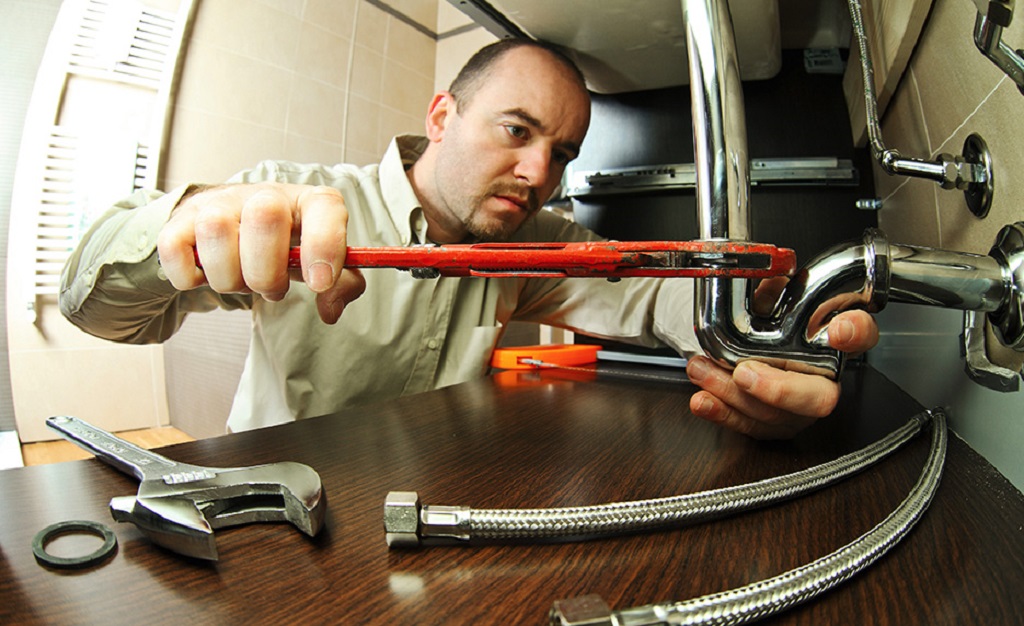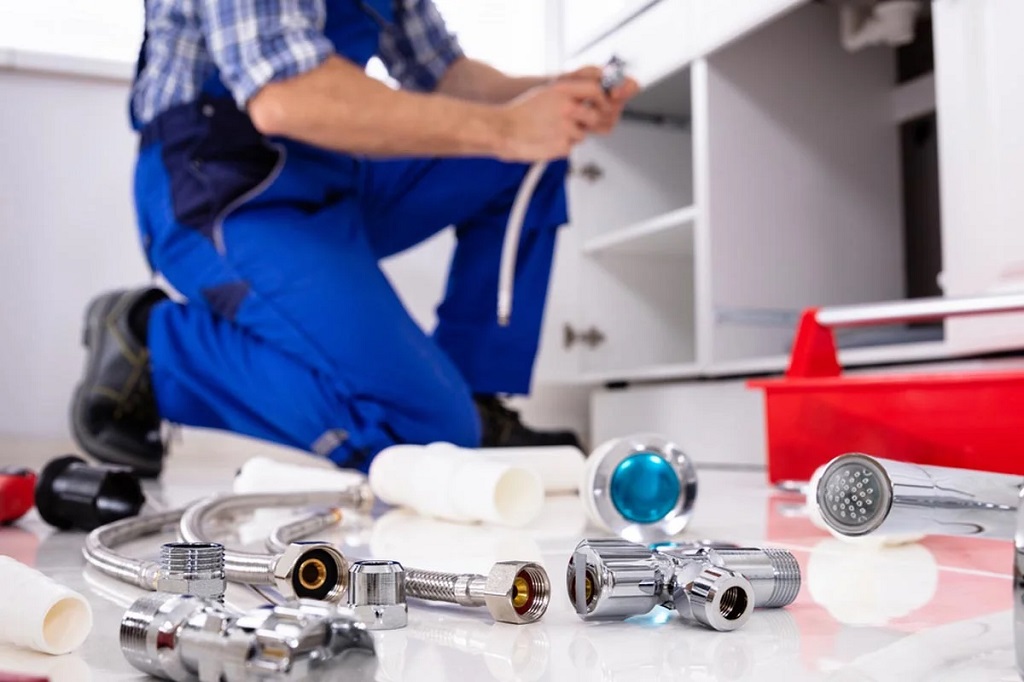To become a plumber in Oklahoma, complete a plumbing apprenticeship and obtain a journeyman plumber license. Additionally, you’ll need to pass the state exam and meet experience requirements.
If you’re considering a career as a plumber in Oklahoma, it’s essential to understand the specific steps and requirements for entering the field. Plumbers play a crucial role in maintaining and repairing water and drainage systems, making it a rewarding and in-demand profession.
By gaining the necessary training and licensing, you can pursue a successful career in plumbing while contributing to the safety and functionality of buildings and infrastructure in Oklahoma. This guide will provide you with the essential information and steps to become a licensed plumber in the state, setting you on the path to a fulfilling and challenging profession.
1. Requirements To Become A Plumber In Oklahoma
To become a plumber in Oklahoma, you need to meet certain requirements. The first requirement is to have a high school diploma or GED. Additionally, you must complete a plumbing apprenticeship. Moreover, passing a state licensing exam is also necessary. The completion of a plumbing apprenticeship is a crucial step. In addition, gaining practical experience in the field is important. Furthermore, studying for the state licensing exam is essential. The exam covers various aspects of plumbing, including codes and regulations. Moreover, it evaluates your knowledge and skills. In conclusion, meeting these requirements will enable you to pursue a career as a plumber in Oklahoma.
2. Choosing The Right Plumbing Apprenticeship Program
Researching Accredited Programs: When pursuing a plumbing apprenticeship in Oklahoma, ensure that the program you choose is accredited by relevant authorities to guarantee quality training.
Considering Program Duration and Schedule: Look for a program that aligns with your schedule and offers a reasonable duration to acquire the necessary skills and knowledge.
Evaluating Training Facilities and Resources: It’s essential to assess the training facilities and resources available to ensure a conducive learning environment for your plumbing apprenticeship.
3. Gaining Hands-on Plumbing Experience
Gain valuable hands-on plumbing experience to kickstart your plumbing career in Oklahoma. Learn practical skills and techniques through apprenticeships or vocational training for a successful path to becoming a licensed plumber.
3. Gaining Hands-On Plumbing Experience3.1 Working as an Apprentice Plumber: One effective way to gain practical plumbing experience in Oklahoma is by working as an apprentice plumber. By apprenticing under a licensed plumber, you can learn the trade firsthand and acquire valuable skills. This hands-on experience will allow you to understand the day-to-day tasks and challenges of being a plumber. 3.2 Learning from Experienced Plumbers: Another valuable method to enhance your plumbing knowledge is by learning from experienced plumbers. Networking with established professionals in the field can provide you with invaluable insights and advice. Attending industry events, workshops, or even connecting with them online can help you gain a deeper understanding of the plumbing trade. 3.3 Participating in Plumbing Projects and Repairs: Actively participating in plumbing projects and repairs can further develop your skills. This could involve assisting with installations, repairs, or maintenance tasks. By actively engaging in real-world scenarios, you will gain practical experience and improve your problem-solving abilities. By following these steps, you can gain the hands-on experience necessary to become a successful plumber in Oklahoma.
4. Acquiring Plumbing Knowledge And Skills
To become a plumber in Oklahoma, it is essential to acquire plumbing knowledge and skills. This involves studying plumbing codes and regulations, understanding plumbing systems and components, and practicing plumbing techniques and methods. Plumbing codes and regulations dictate the standards and guidelines that plumbers must adhere to in their work. By studying these codes, aspiring plumbers can obtain the necessary knowledge to ensure compliance and provide safe plumbing services. Understanding plumbing systems and components is crucial for troubleshooting and repairs. Plumbers must be familiar with different types of pipes, fixtures, and fittings, as well as their respective functions. To develop practical skills, aspiring plumbers can practice various plumbing techniques, such as proper pipe installation, soldering, and drain cleaning. This hands-on experience helps build expertise and confidence in tackling real-world plumbing challenges. By acquiring the necessary knowledge and skills, individuals can pursue a successful career as a plumber in Oklahoma.
5. Passing The Oklahoma Plumbing Licensing Exam
To become a plumber in Oklahoma, it is essential to pass the Oklahoma Plumbing Licensing Exam. Familiarizing yourself with the exam format and content is the first step in preparing for success. Understanding what to expect will help you focus your studies on the relevant areas. Utilizing study materials and resources specifically designed for this exam will greatly enhance your understanding of the required knowledge and skills. There are various resources available, such as textbooks, online courses, and practice exams. Taking practice exams will allow you to assess your strengths and weaknesses, identifying areas that need further attention. Seek feedback from those who have already taken the exam or industry professionals who can offer valuable insights. Continuously working on strengthening your knowledge and skills will increase your chances of passing the Oklahoma Plumbing Licensing Exam and achieving your goal of becoming a plumber.
Frequently Asked Questions For How To Become A Plumber In Oklahoma
How Long Does It Take To Become A Plumber In Oklahoma?
Becoming a plumber in Oklahoma typically takes around four to five years. This includes completing an apprenticeship program, which typically lasts about four years, and obtaining the required licenses and certifications. It’s important to note that the exact timeline may vary depending on individual circumstances and the specific training program chosen.
What Are The Requirements To Become A Plumber In Oklahoma?
To become a plumber in Oklahoma, you must meet certain requirements. These typically include completing an apprenticeship program, obtaining a journeyman plumber license, and passing a state examination. Additionally, it’s crucial to have a high school diploma or GED equivalent and possess good math and problem-solving skills.
Make sure to check with your local licensing board for any additional requirements.
How Much Does A Plumber In Oklahoma Earn?
The salary of a plumber in Oklahoma can vary depending on factors such as experience, location, and specialization. On average, a plumber in Oklahoma earns around $50,000 per year, but this can increase with additional certifications and experience. It’s important to note that plumbing is a high-demand field, and as such, there may be good opportunities for growth and higher earnings.
Conclusion
In order to become a successful plumber in Oklahoma, it is crucial to follow the right steps and gain the necessary skills and qualifications. With a high demand for plumbing services in the state, pursuing a career in this field can be rewarding and profitable.
Embark on the journey to becoming a plumber in Florida by mastering the pipe dream through essential steps such as completing an apprenticeship, acquiring relevant licenses, and continuously expanding your knowledge through training and certifications—this will pave the way for establishing yourself as a reputable plumber, ensuring a fulfilling career in Oklahoma’s plumbing industry. Start your journey towards becoming a plumber today and open doors to a promising future.









